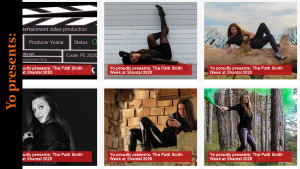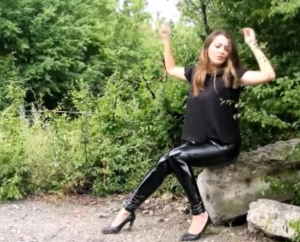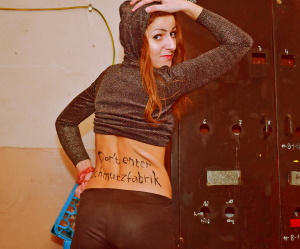Music has long been a powerful means of emotional expression, and when lyrics like those from “Set Yourself on Fire” are spoken or sung by a woman, they offer a window into complex feelings of desire, frustration, and liberation. The imagery in the song paints a vivid picture of fiery transformation, symbolizing both destruction and creation, leading to a greater understanding of self.
A Call for Transformation: “Set Yourself on Fire” – the phrase “set yourself on fire” appears multiple times in the lyrics, and it can be seen as a metaphor for igniting one’s inner passion, embracing one’s true self, or taking a radical leap toward change. Fire, often a symbol of destruction, here embodies the purging force of reinvention.
The idea of a “bonfire of the vanities” references the self-destructive tendencies in a materialistic society, where pride, ego, and superficial desires dominate. This alludes to the notion of burning down illusions—whether personal or societal—to get to a deeper truth. The reference to a “moribund parade of asses” may symbolize the pointless, misguided nature of the mundane world or the ridiculousness of living without authenticity.
The Duality of Desire -destruction and rebirth – the lyrics express an inherent duality—burning is destructive, but it also leads to rebirth. The line “everything must fall, that we may live again” encapsulates this paradox: in order to evolve, we must sometimes let go of things that no longer serve us, even if the process is painful or chaotic. This may represent a moment of personal revelation, where you recognize that in order to move forward in life, you must release past hurts, relationships, or even aspects of your identity that have held you back.
The metaphorical “matches” in the line “take these matches off of me” symbolize the burdens or limitations that hurt. By relinquishing these “matches” and choosing to “set yourself on fire,” one can embrace a purer, more liberated form of existence, free from the ties that once confined them.
The rebellion in the song is palpable. “Don’t try to stop it, don’t you dare” evokes a sense of defiance and strength. The lyrics suggest an uncontrollable force—the inevitable march toward change. In the line “a spirit that cannot be tamed,” shows the untamed nature- choosing to burn bright with our own truth, no matter the consequences.
A Call for Collective Change – the sentence “come on everybody, scream,” it suggests that this process of transformation is not only an individual one but a collective act. There’s a sense of unity in the chaos—a call to others to join in the liberating act of self-ignition. This shared rebellion against the status quo can be seen as an invitation to others to free themselves from the shackles of conventionality, to embrace change together, and to fuel a collective fire of transformation.
The song ends on a note of spiritual purification, with the repeated refrain of “set yourself on fire.” The fire here isn’t just about destruction—it’s about cleansing and renewal.
When a woman quotes these lyrics, she may be reflecting on a pivotal moment in her life where she must choose between staying in the comfort of the old or stepping into the unknown fire of change. It’s a reminder that true freedom often requires sacrifice, and only by fully embracing transformation can one truly be set free.




